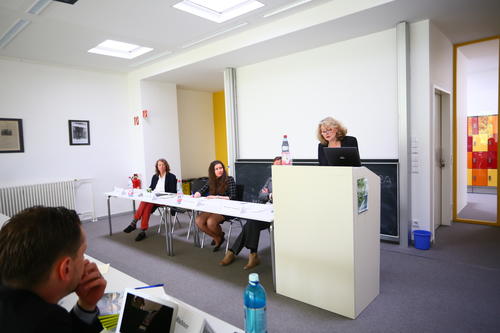Workshop Report on "Comparing Media beyond the Nation State - A German-Russian Workshop on Diversity, Migration and Journalism"
The workshop on "Comparing Media beyond the Nation State" was co-organized by colleagues from Saint Petersburg State University and our institute. During this one-day event, the lively discussion and varied presentations demonstrated the relevance of migration and media in both research contexts. There are numerous approaches to the study of migration and media, ranging from the role of ethnic media and media usage in migration contexts, to the representation of migrants and migration in national and social media, and the more global dynamics of mobility and migration that complicate traditional notions of nationhood, state, and identity.
The dimension of conflict between migrant communities, whether mediated or located, and residential or national groups was frequently cited as a source of antagonism but also as initiation of identity processes. Between Germany and Russia, differences in the constitution and role of the public sphere also distinguish the debate of migration and migrants in the public. The Russian debate labels actors from Central Asia and former Soviet Republics as migrants, reserving other terms for gastarbeiter or refugees or migrants from the West. In Germany, by contrast, the debate has for a long time focused on people with an “immigrant background” in terms of their integration in German society and has only recently adopted the problem of migration in relation to refugees from central Africa and the Middle East coming to “Fortress Europe” in search of political asylum.
As an overall result of the debate, two distinct fields of research were regarded as important: the representation of migration/migrants in national media or media discourse as opposed to migrants’ own accounts, own modes of organization, own agency in defining communities and its relevance for the constitution of public spheres. More generally, migration needs to be distinguished and put in relation to global processes of mobility and new conceptualizations of political mobilization under conditions of networked, social, and digital media. Thus, migration and global mobilities are seen as current challenges for the constitution of public spheres which are no longer to be understood in a framework of the nationstate.
The organizers thank all participants for their valuable and engaged contributions, as well as the Center for International Cooperation of Freie Universität Berlin and Saint Petersburg State University for supporting this international workshop. We were also happy to see many students who are enrolled in the Double Degree Master's Program Global Communication and International Journalism taking part in the debate.
